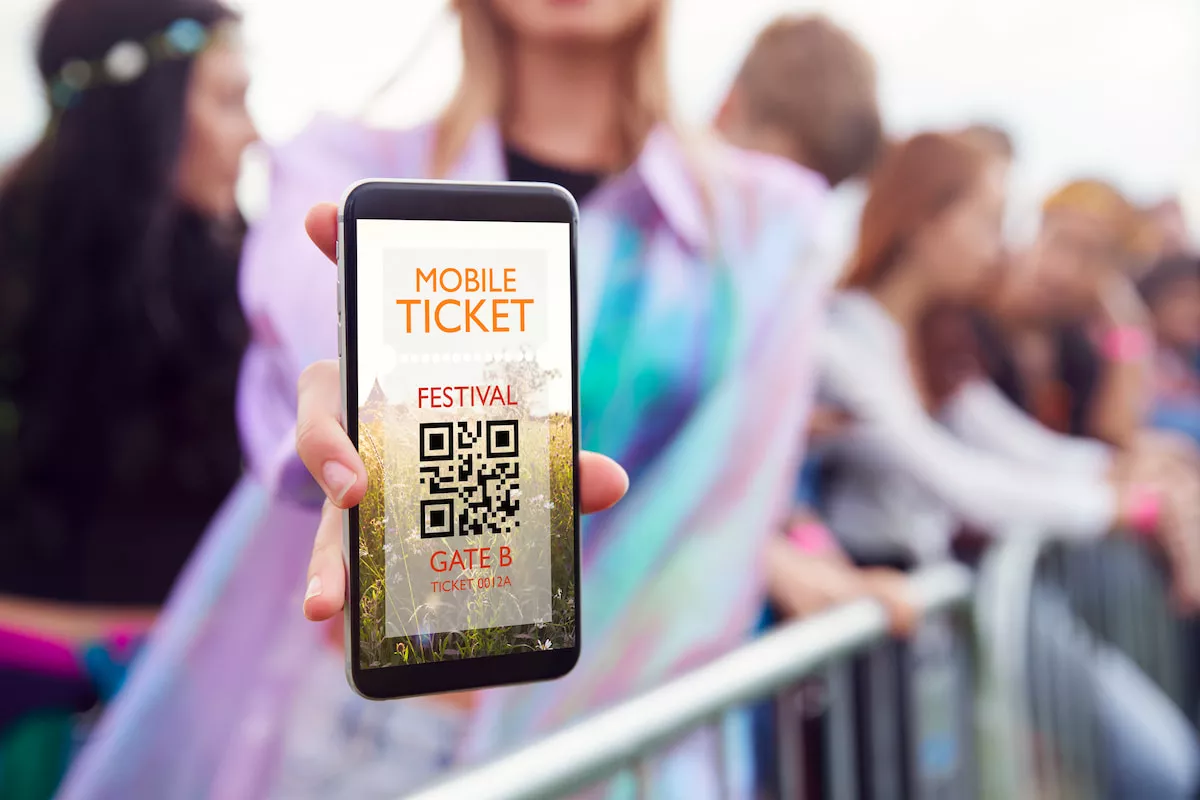If you are thinking of planning an event, your mind might be stuck between a hundred things right about now. Many aspects go into executing a successful event, so it’s natural to feel overwhelmed at the thought of the process.
However, running an event does not have to be this complicated. All you need is a detailed game plan to guide you through organizing an event and ensure no important tasks are missed.
We have been helping organizers run successful events for many years, and we are here to share our steps for planning an event along with tips on hassle-free planning. By following these steps, you can plan and execute a successful event and create an unforgettable experience for your audience.
Thinking of organizing an event? Let us help you out! Contact us to learn more about Platinumlist’s event management and ticketing solutions.

How To Plan An Event
Set Your Event Goals and Objectives
The first step towards planning a successful event is determining your event goals and objectives, as they will impact every decision you make during this process.
An event can have various goals and objectives, like –
- Creating awareness for your brand
- Bringing together industry leaders to establish thought leadership in the field
- Raising money for a charity or a cause
- Gaining profits and revenue.
Understanding what objectives you want to achieve through this event is the only way to ensure that your plan and decisions align with your final goal. For instance, if your event’s goal is to establish thought leadership in your industry, you will likely choose a business conference style of event with a professional panel rather than a casual dinner event. Similarly, if your main goal is to gain profits, you will want to aim for the highest profit events like concerts or music festivals.
Without a proper understanding of what you aim to do with your event, there will be a lack of direction in your planning process, leading to a poorly organized event.
Identify Your Target Audience
No matter what objectives you set for your event, one of the main goals of any event is to reach the right target audience. Whether you want to increase brand awareness, support a cause, or earn profits. Unless your event is targeted specifically towards the right audience to help you achieve your final goals, all your effort towards organizing a great event will be in vain.
The only way to ensure that you are reaching the right target audience is by identifying and describing your ideal client so that you can better understand the kind of event and marketing that benefits them.
If you are having trouble determining your target audience, here is an exercise to help you.
Think of your ideal client and try to picture them. Give them a name, imagine them as real people, and answer these questions.
- How old are they?
- What is their gender?
- Where do they live? (city, country, area)
- What is their profession?
- What are their hobbies?
- What do they like to do during their free time?
- What social media platforms do they use?
Ultimately, you should have a clear picture of the target customer you want to target with demographic and other details, and you can start planning your event accordingly.
Determine Your Event Budget
Your event’s budget will impact important decisions in the planning process, including the venue, the performers or participants, the marketing budget and plan, event ticket price, event partners and vendors, and much more. This is why it’s crucial to determine the budget early in the planning process.
Before setting the budget, conduct a thorough analysis of the financial resources that are available to you so that you do not over or under-inflate the budget. This is also a good time to start thinking about sponsorships and researching and reaching out to the right brands to partner with to help sponsor your events.
An easy way to decide on the right budget for your event is to break down all the activities and spending included in the event organizing process and determine an estimated amount (based on experience and research) for each one. This way, you can make a more informed decision about the money required to plan this event instead of just eyeballing it.

Establish Your Team
Your event management team is the backbone of your success. A good team can take you to new heights, while a lousy one can cost you immensely. It’s important to plan out your team per the tasks and responsibilities that will be part of your event management process so that you know exactly how many people are required, how many people are already available, and how many need to be hired.
This way, you can ensure that you don’t under or overstaff your team because both situations lead to a drop in the efficiency and effectiveness of your operations.
Once the team has been hired, each person must be provided with a dedicated list of tasks and responsibilities so that every task has been assigned and taken care of and nothing important is missed. This also increases the accountability towards achieving those tasks for each team member.
Here are some people you may require on your event management team
- Event Manager.
- Ticketing Manager.
- Marketing Manager.
- Social Media Marketing Manager.
- Venue Manager.
- On-site Ushers and Ticketing Staff.
Instead of hiring specialists for each task, you can partner with Platinumlist to help you with your event management tasks. We have a large, in-house team of event management, marketing, and ticketing specialists who can help you make your event successful.
Interested in finding out more? Get in touch with us now.
Select And Hire Your Event Performers
Choosing the right artists or speakers for your event is the most important step in your event-organizing process. No matter how good of an event you run, you won’t be able to sell tickets if the artist is not a good fit for the target audience.
Before selecting your event’s performers, conduct thorough market research to understand the kind of artists your target customers prefer so that you can hire a relevant performer. For instance, if your target audience majorly comprises the Gen Z population, you will not be able to gain much traction by hiring old-school artists like Backstreet Boys. Find what your audience likes and pick the artist accordingly.
Once you narrow down the choice of talent based on customer preferences, it’s also a good idea to research their popularity and past performances. How many concerts have they played in the last year, and what were the reviews from them? How many awards do they hold? How popular are they among your target audience? These questions will help you determine which artist has the highest success rate.
If you plan to hire more than one performer, ensure that each gets along and has no problem playing together.

Find A Date & Venue For Your Event
Finalizing a date and venue for the event goes hand-in-hand. This is because you cannot finalize the date before checking venue availabilities.
Choosing the right venue is pivotal to a successful event. You want to ensure that the venue –
- is available on the proposed dates as per the artist’s availability
- can seat the projected number of attendees
- is equipped with the required audio/visual hardware
- is easy to access for the crowd
- has all the relevant permits to hold the event.
You can also get in touch with our team to find out about the best venues in your town, understand the market rates of venues, and make an informed decision based on our team’s knowledge and experience.
Choosing the right date is equally as important. Many things have to be balanced when picking the date – the availability of the venue and the artist being two of the most important factors. You also want to ensure that the date falls on a weekend so that people can attend easily and does not coincide with another popular event, as this may affect the number of attendees for your event.
Once the date and venue are finalized, you can start finalizing other vendors like videographers, food and beverage suppliers, and ticketing partners.
Look For Sponsors To Pitch In
Running a full-fledged event is an expensive business, which is why most events have multiple sponsors. Two types of sponsorships can increase your resources.
- Sponsors can assist in your event’s financial requirements by either providing monetary support in exchange for brand marketing,
- Partners can act as vendors for food and beverage, marketing, and so on.
Both types of sponsors can be beneficial for your event. However, finding people to sponsor and partner with your event can be tricky and require a proper outreach plan based on research and data.
To increase your sponsorship opportunities, find out which brands have previously participated in similar events, as they may be interested in doing it again. It’s also a good idea to dig into your network and connect with people you have worked with.
Create A Marketing Plan
We’ve said it before, and we’ll say it again. The only way to sell many tickets is by reaching a large number of people through your marketing efforts. It’s simple, how will anyone buy tickets to your event if they don’t even know it’s happening?
Creating a step-by-step marketing plan is a prerequisite for your event’s sure-shot success. You must know exactly who your target audience is, what marketing platforms they spend their time on, and how you plan to market the event to reach and convert them into customers.
A marketing plan should include, but not be limited to, the following elements.
- A complete marketing timeline that details a step-by-step process of your marketing efforts through the ticket-sale journey
- Thorough research on your target market to understand their buying behavior
- Branding and artwork to help your event stand out amongst others
- A social media marketing plan to reach customers through Instagram, TikTok, YouTube, LinkedIn, and other platforms.
- A marketing budget to be dedicated toward paid marketing and other campaigns
- A dedicated paid marketing campaign plan
- A tracking and KPI sheet to understand how the ticket sales are performing
- A post-event marketing survey to get a deeper look into the effectiveness of each marketing strategy.
If you want to create an event marketing plan but don’t know where to start, check out our full guide here.
Find Suppliers For The Event
An event has many moving parts, and not everything can be managed by your team, which is why you will require suppliers and vendors to cater to your event needs. This can include food and beverage vendors, ushers, photographers and videographers, event planners, audio/video techs, and ticketing partners.
When choosing a vendor, ensure you pick someone reliable and trustworthy. Ideally, they should have been a supplier for an event before and must be experienced in the field to ensure everything goes smoothly.
If you are looking for a reliable ticketing partner, our experienced team at Platinumlist can help you. Being one of the most recognized and trustworthy event partners in the region, Platinumlist provides an all-in-one event management and ticketing solution with an online ticketing platform with secure online payment and on-site ticketing staff and system. With years of experience in the field, our team can also help you register and streamline relevant government event permits and fulfill all your event ticketing needs, including ushers, ticketing staff with entry scanners, customer support at entry points, and cash desks. No matter what your event ticketing needs, Platinumlist can help you with it.
Use Technology To Improve Your Event Planning Processes
Planning an event is getting increasingly demanding as the industry evolves. With the ever-changing dynamics of the field, it’s getting harder for event managers and organizers to keep up. However, thanks to growing technological advancement, many tools and systems can streamline various event management processes.
But investing in technologies can become very expensive very quickly. So how do you find the right balance between productivity and expenditure? It’s a good idea to recognize gaps in your organization’s workings to figure out where you lack resources and require the biggest support and invest accordingly. When it comes to technology, there are 100s of different systems you can purchase, but not everything is suitable for your business. The goal is to invest in things that can make your life easy and save time and money.
Here are a few event planning tasks that can be streamlined with the help of technology.
Ticketing: Ticketing events is probably one of the most difficult jobs that can be easily streamlined with the help of technology and the right partners. Instead of doing it manually, find a trusted ticketing partner to help you ease the process by creating an event page on their system, creating a secure payment gateway, and processing the tickets with QR scanners at the venue.
Seat Mapping: Creating a seat map and matching tickets for your event’s menu can be tricky. Instead, you can use advanced seat mapping technologies that can easily render venue maps to digital and highly-responsive seating plans that allow customers to easily select seats with a precise section name and number like the one offered by Platinumlist.
Event Check-in: Technology can significantly streamline the event check-in process for both the company and customers by creating a simple check-in process wherein the attendee has to scan the ticket QR code to enter the venue. Platinumlist’s efficient all-access app further eases this process by making this system available online and offline on mobile devices.
Looking for an all-in-one technology solution for your next event? Get in touch with us now by finding out more about Platinumlist.

Create an Event Agenda
As you already know, the event day will be very busy. There will be hundreds of tasks to take care of while ensuring everything runs smoothly. You must manage your tasks and ensure all the partners and vendors complete theirs.
You cannot afford to miss a single task, and the only way to ensure that does not happen is by making a detailed day-of-the-event agenda and checklist beforehand. We recommend doing this about a week before the event date so that you are fully aware of all the tasks that must be completed on the day.
Create a minute-by-minute timeline of all the tasks and assign a team member to each so that everyone knows what they are responsible for and can be held accountable for it on the event day.
Ensure that your team is well aware of their tasks for the day of the event, and keep your checklist on track throughout the day so that you don’t fall behind on time. You can use free tools like Trello to create and manage your event agenda.
Establish A Post-Event Customer Survey
Each event you run is a learning experience, and the best way to learn as much as possible from your event is to set up a tracking and survey system.
An internal tracking system should have all the goals and KPIs of the event, including spending, revenue, profit, number of attendees, etc., that should be established before the event occurs. After the event, your team should record the actual numbers and measure them against the KPIs to better understand the event’s performance, what worked, and what did not so that you can apply these learnings to your next event.
An external customer survey can collect important feedback from your attendees about your event and help identify what they liked and disliked on the day. This type of survey will help you better understand your event’s performance and your customer’s preferences, which, once again, can be applied to your next event.
To simplify your customer survey process, Platinumlist’s ticketing technology comes with a built-in customizable survey system that automates personalized surveys to your customers after the event and collects all the data in one dashboard, making it easier to analyze and process.
Interested in learning more about our customer survey solution? Get in touch with us now.



